Why are so many US special forces deployed across Africa?
'War on terror' changes gear: Obama is due to explain his new foreign policy at West Point today

A free daily email with the biggest news stories of the day – and the best features from TheWeek.com
You are now subscribed
Your newsletter sign-up was successful
The kidnapping of nearly 300 schoolgirls by the extreme Islamist Boko Haram group in Nigeria has brought to light a new US military stealth campaign in Africa.
It turns out that the American special forces dispatched to help find and rescue the girls, snatched from their school by al-Qaeda-affiliated terrorists in April, did not have to travel as far as was thought.
They are part of a US Special Operations group made up of Green Berets and Delta Force commandos already deployed in at least four north and west African countries on a mission to train and beef up local anti-terrorists forces.
The Week
Escape your echo chamber. Get the facts behind the news, plus analysis from multiple perspectives.

Sign up for The Week's Free Newsletters
From our morning news briefing to a weekly Good News Newsletter, get the best of The Week delivered directly to your inbox.
From our morning news briefing to a weekly Good News Newsletter, get the best of The Week delivered directly to your inbox.
They are funded with $70 million from the “black” – secret – Pentagon budget and have access to drones, although they have to get special permission from the Pentagon to use them.
The idea is to give African countries considered friendly to the West the skills and power to fight their own wars against the Islamic extremist groups spreading through Africa since the “Arab spring”, which Washington sees as a new front line in the “war on terror”.
But the Special Operations force, launched in 2012 in the wake of the Libyan revolution, seems also to be the prototype for a new Obama foreign policy.
Today the President is due to explain his new policy in a speech at West Point. In the words of the New York Times, he will "emphasise a foreign policy that would avoid large land wars, like those in Afghanistan and Iraq, and instead stress the training of allied and partner nations to battle militants on their own soil”.
A free daily email with the biggest news stories of the day – and the best features from TheWeek.com
He is also expected to announce an extension of the training programme to the “moderates” of the Syria rebellion.
The policy has roots in a new Army brigade formed in Fort Riley, according to a story published in the Army Times in December 2012.
“An Army brigade will begin sending small teams into as many as 35 African nations early next year,” it reported, “as part of an intensifying Pentagon effort to train countries to battle extremists and give the US a ready and trained force to dispatch to Africa if crises requiring the US military emerge.
“The teams will be limited to training and equipping efforts, and will not be permitted to conduct military operations without specific, additional approvals from the Secretary of Defence.”
It added: “The brigade will be carved up into different teams designed to meet the specific needs of each African nation. As the year goes on, the teams will travel from Fort Riley to those nations — all while trying to avoid any appearance of a large US military footprint.”
The American commandos have so far targeted four countries - Niger, Mali, Mauritania and Libya – according to the New York Times which has obtained budget documents detailing Pentagon expenditure on the project.
It is spending $16 million in Libya to train and equip two companies of local “elite” troops. In Niger, where America has used unarmed surveillance drones to fly over Mali in support of French and UN troops, the Pentagon is spending nearly $15 million on the country’s new counter-terrorism unit. About $29 million has been budgeted for Mauritania.
Stealth operations with minimal footprints suit Obama’s style. They keep more Americans away from the front line and have some of the disengaged, remote-control quality of his drone campaign, which Obama has put at the forefront of the anti-terror project. Among their advantages is that they are controlled in private from the White House, without the need to involve Congress.
But what little is known about the Africa operation suggests a wobbly foundation for a new “Obama doctrine” on the projection of US military might.
The Mali operation went on hold last year when rebels split the country and took Timbucktu, prompting French and UN intervention. The first officers trained by the Americans had promptly defected to the rebels.
In Libya, things quickly went wrong when weapons brought in by the Americans were stolen. “No episode is a more sobering reminder of these risks than the collapse of the American counter-terrorism training mission last August at Base 27, also called Camp Younis, a Libyan military installation about 15 miles from Tripoli, the capital,” reports the Times.
The American trainers had issued the Libyans with M4 automatic rifles, night-vision goggles, Glock pistols and armored vehicles, which the Libyans were responsible for guarding. Instead, gunmen from a local militia overwhelmed the guards in a pre-dawn raid on 4 August, and stole the lot. The Americans suspect an inside job.
“You have to make sure of who you’re training,” Maj. Gen. Patrick J. Donahue II, the commander of US Army soldiers operating in Africa, told the Times. “It can’t be the standard, ‘Has this guy been a terrorist or some sort of criminal?’ but also, ‘What are his allegiances? Is he true to the country, or is he still bound to his militia?’ ”
The man behind the policy is Michael Sheehan, who thought it up when he was Obama’s senior Pentagon official in charge of Special Operations. He is now running the Combating Terrorism Centre at West Point, where he will be Obama’s host today.
“Training indigenous forces to go after threats in their own country is what we need to be doing,” he insists.
But Peter Pham, director of the Africa Center of the Atlantic Council, a Washington think tank, warned that America “must make tough political judgments” before trying to set up local anti-terrorist squads.
“The host country has to have the political will to fight terrorism, not just the desire to build up an elite force that could be used for regime protection,” he said. “And the military has to be viewed well or at least neutrally by a country’s population.”
The signs are that setting up effective proxies for the next battle in the “war on terror” may be a lot easier said than done amid the porous borders, swirling allegiances, tribal divides and almost universal corruption of the chosen terrain.
The signs are that setting up effective proxies for the next battle in the “war on terror” may be a lot easier said than done amid the porous borders, swirling allegiances, tribal divides and almost universal corruption of the chosen terrain.
-
 How to Get to Heaven from Belfast: a ‘highly entertaining ride’
How to Get to Heaven from Belfast: a ‘highly entertaining ride’The Week Recommends Mystery-comedy from the creator of Derry Girls should be ‘your new binge-watch’
-
 The 8 best TV shows of the 1960s
The 8 best TV shows of the 1960sThe standout shows of this decade take viewers from outer space to the Wild West
-
 Microdramas are booming
Microdramas are boomingUnder the radar Scroll to watch a whole movie
-
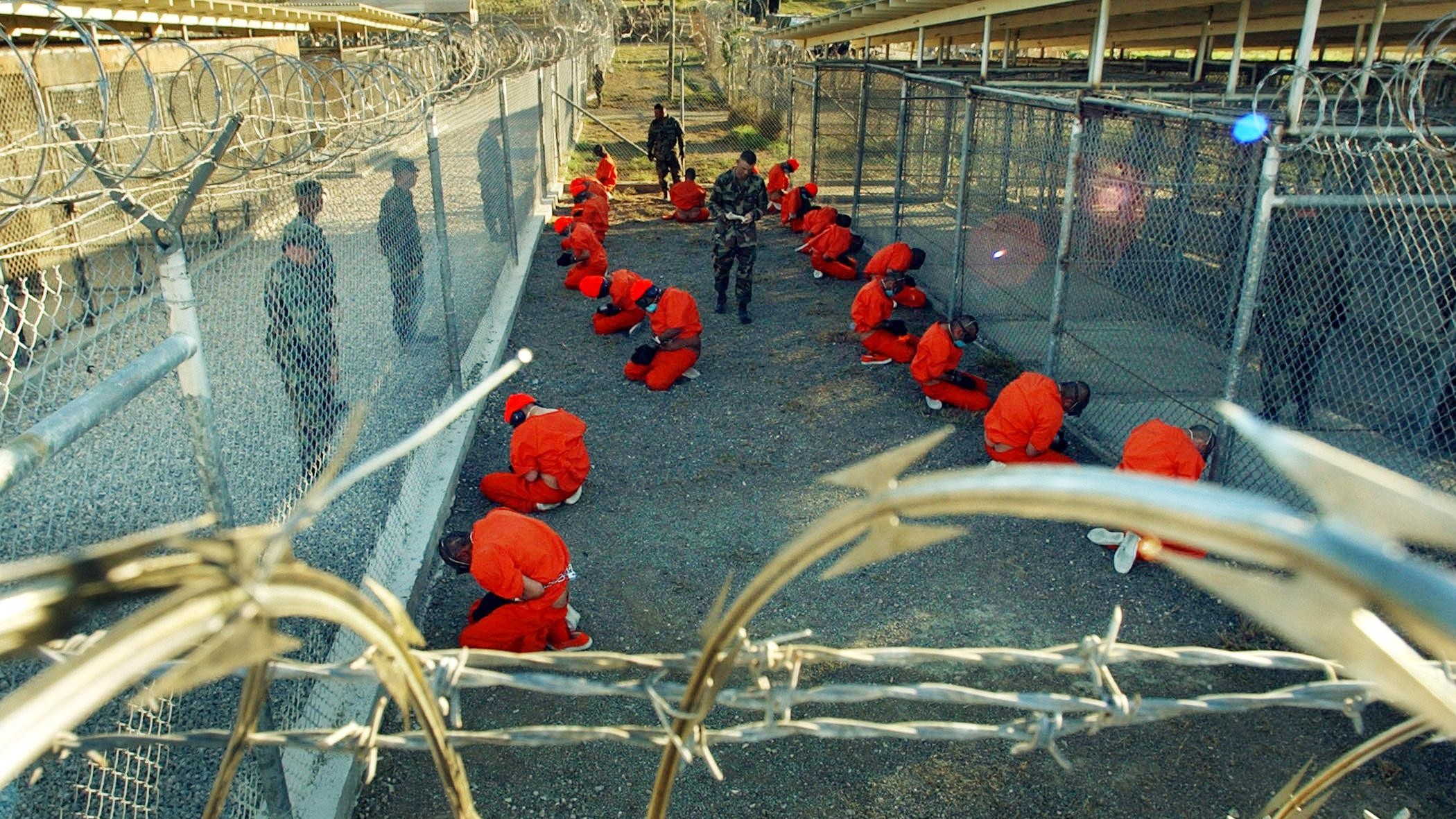 A history of Guantánamo Bay
A history of Guantánamo BayThe Explainer War of Terror's 'symbol of torture, rendition and indefinite detention' is subject of new Serial podcast series
-
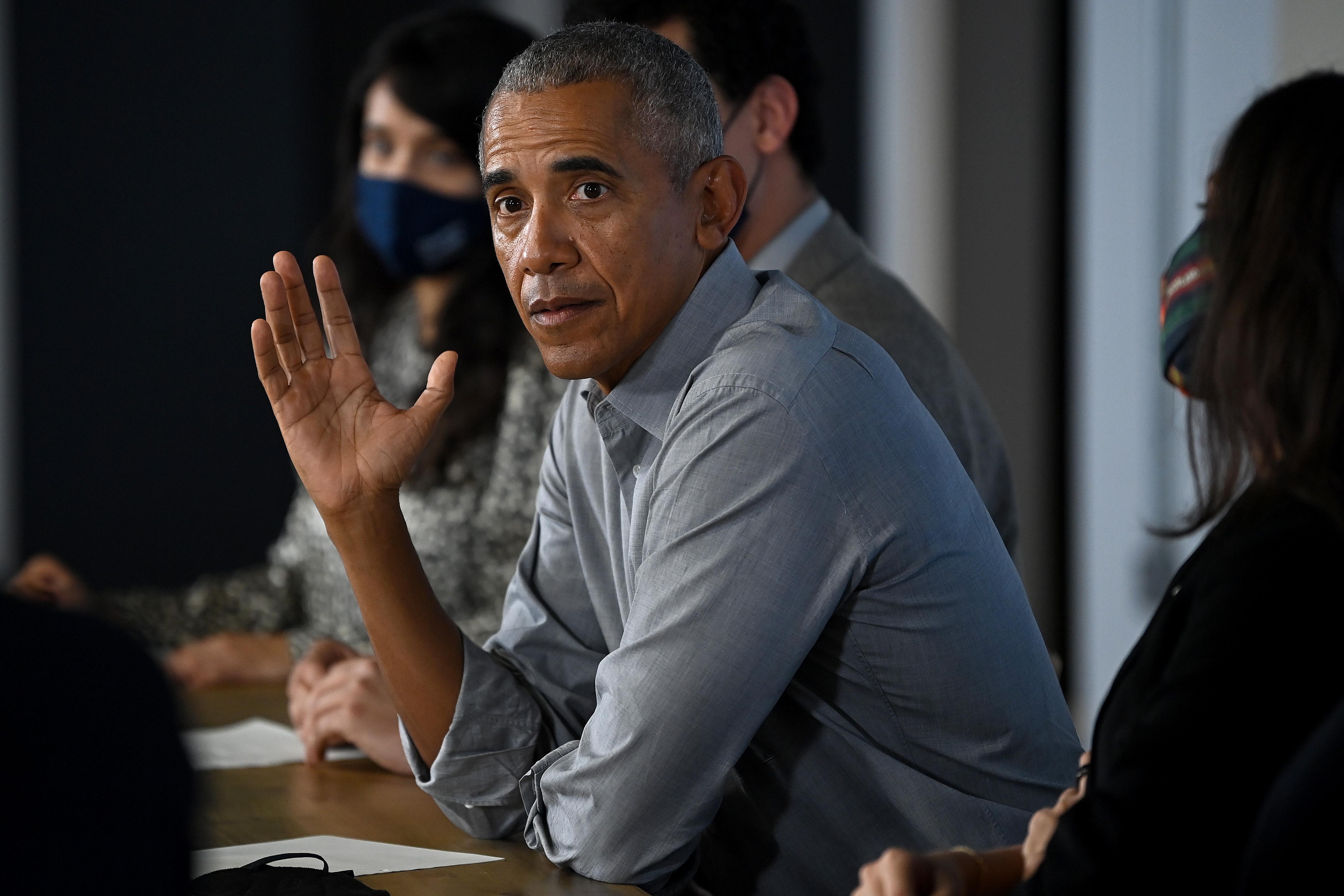 Obama calls on Americans to support sanctions against Russia despite 'economic consequences'
Obama calls on Americans to support sanctions against Russia despite 'economic consequences'Speed Read
-
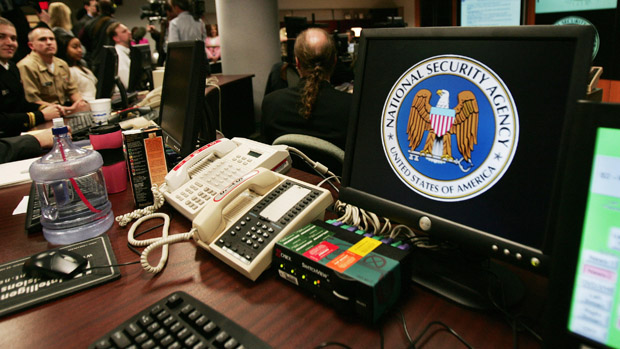 NSA mass surveillance 'illegal', rules US federal court
NSA mass surveillance 'illegal', rules US federal courtIn Depth Landmark ruling hailed as 'huge step' for individual Americans' rights, but the fight is far from over
-
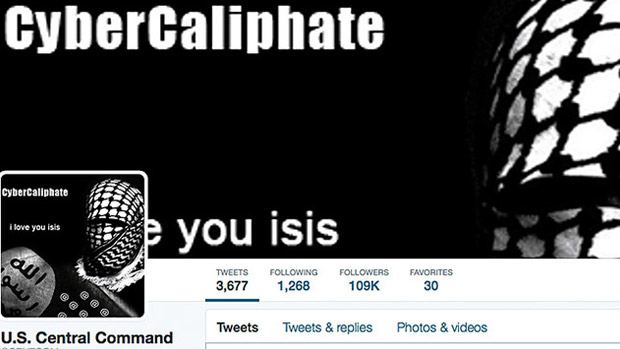 US Centcom's social media hacked by Islamic State supporters
US Centcom's social media hacked by Islamic State supportersSpeed Read 'American soldiers, we are coming, watch your back' – threats posted on Centcom's Twitter feed
-
 Boom! for US arms-makers as war on IS brings in billions
Boom! for US arms-makers as war on IS brings in billionsIn Depth Wall St cheers as US bombs are used to blow up US-made equipment that will all need replacing
-
 Syria: does Obama know for sure who his 'friends' are?
Syria: does Obama know for sure who his 'friends' are?In Depth Family of beheaded journalist claim he was sold to IS by 'moderates' Obama is now supporting
-
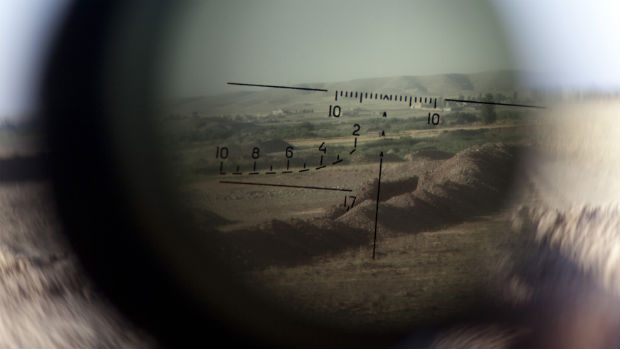 US launches new strikes against Islamic State militants
US launches new strikes against Islamic State militantsSpeed Read Strikes move closer to Baghdad as Obama launches campaign to 'degrade and destroy' militant group
-
 Obama, the reluctant warrior, back by popular demand
Obama, the reluctant warrior, back by popular demandIn Depth America has made it loud and clear that he should go get the killers who beheaded the two journalists